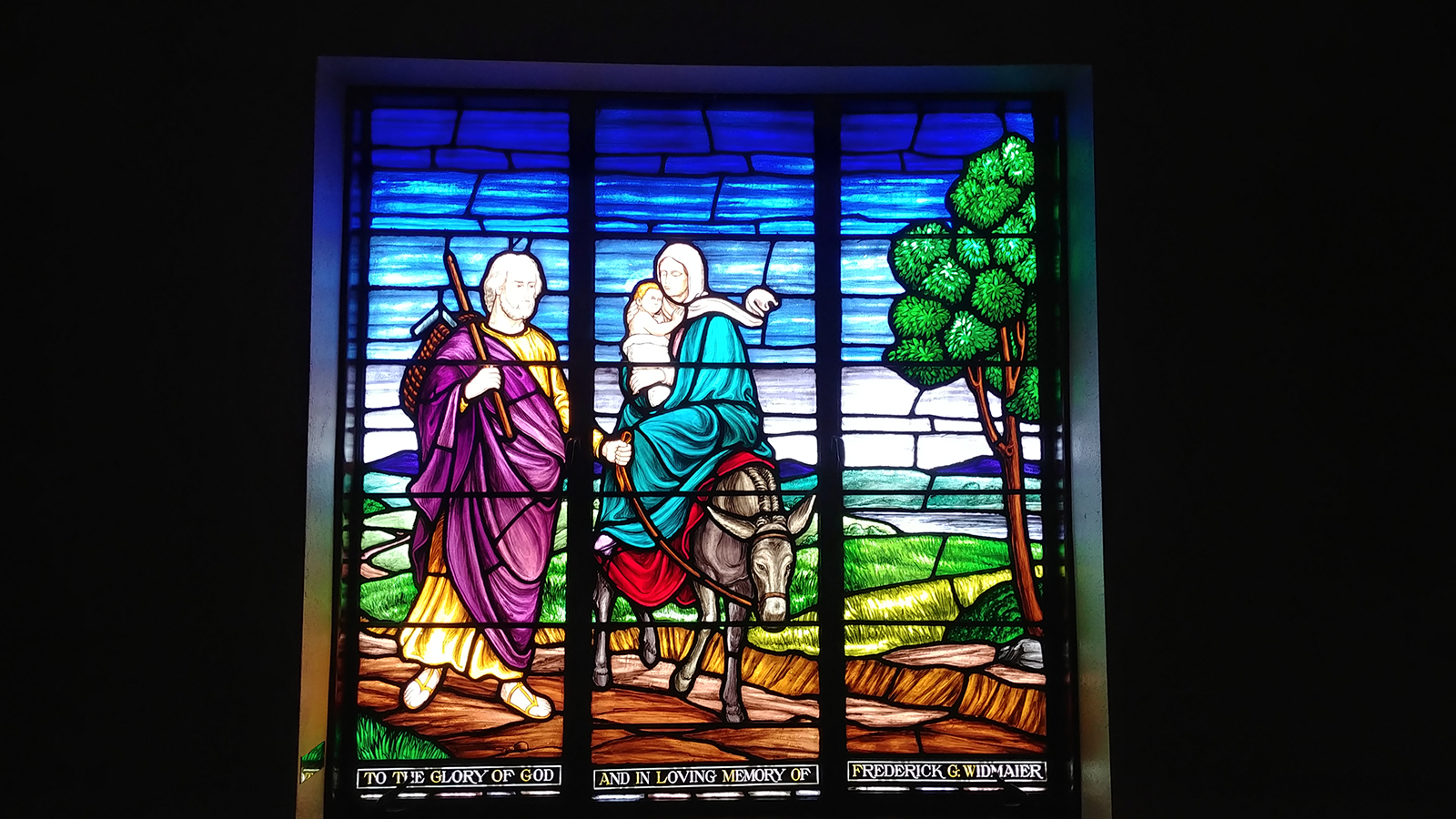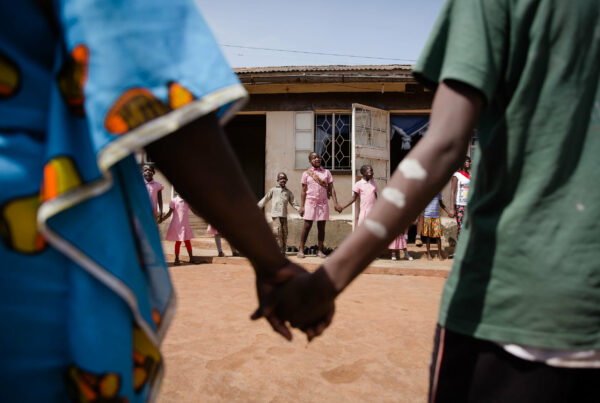Early in college, a beloved English professor introduced me to the writing of Frederick Buechner, a Presbyterian minister. Trying to discern what God was calling me to do was a hovering question during those years. Sometimes the answer was clear, and at other times, the answer came through a series of events that fell into place, confirming a suspicion or kernel of truth deep inside. In his book Wishful Thinking, Buechner writes, “The place God calls you to is the place where your deep gladness and the world’s deep hunger meet.” A quarter-century later, I think I’ve found that intersection in teaching English to refugees.
I feel deeply unsettled by the events in our world, but I feel deeply at peace with the work I am called to be doing. For the past two years, I have been the English language coordinator for a refugee and asylum seeker resettlement program called Interfaith-RISE (Refugee and Immigrant Services and Empowerment), based in Highland Park, New Jersey.
Learning about refugees
In the summer of 2015, I began reading about the current refugee crisis and the many people with no safe place to call home. That fall I joined a walk-a-thon our church held to raise money for local refugee resettlement. During this interfaith walk-a-thon, Jewish, Muslim, and Christian leaders said prayers and cited passages from the Torah, the Koran, and the Bible about the importance of welcoming the stranger. By the end of 2015, I had left my job teaching English as a Second Language at a local university. I was listening for where God might be calling me next. A few months later, I was volunteering for Interfaith-RISE, teaching my first refugee student—a woman from the Congo who had waited 10 years with her family to enter the United States. By 2017, a grant allowed my volunteer job to become a part-time paid position where I trained and coordinated volunteer English language tutors. We now have more than 30 volunteer teachers who have taught more than 50 students total.
Over the past three years, I have had the opportunity to meet, teach, and befriend women, men, and children from numerous countries around the world. They are mothers, fathers, carpenters, farmers, community and church leaders, students, and toddlers. They are refugees, asylum-seekers, and image-bearers of God. They have traveled alone or as families seeking community, a home, and a safe future for their children. My primary work is to teach English and literacy skills, how to use WIC coupons, or car part vocabulary, but often I have sat without any words to teach, listening carefully to the stories of injustice and horror my students have experienced. I hear how one student broke her foot while running away from bombing, or how another was forced to flee from six different homes with his wife and children. As my students learn to trust one another, the stories come creeping out. Then I cease to be the teacher and just listen. I hold their stories and pain for a moment so that they can keep going.

Even Jesus was once a refugee, away from home in Egypt, as depicted in this stained-glass window at Church on the Hill in Flushing, New York.
Learning about Jesus
In the Gospels, we often see Christ listening to people on the margins, people pushed to the edges of society, people looking for community and a safe place to call home. To be a disciple of Christ, I think, means placing yourself on the margins, listening, and then working for restoration. Whose voice do you hear? Who is calling to you? Who needs an advocate? What does the world most need to have healed right now? The answers to these questions will be different for each of us, but it seems to me these are the questions to ask. Where can we bring God’s restorative love and justice? What or who needs to know the power of God’s redeeming love?
Following God’s call for my life means standing on the margins and listening. Those who have been pushed out and those who are looking for security in a new land are those I feel called to serve and advocate for. If I ignore these voices, if I assert that there is no room here for those seeking safety, then it seems to me that I may be in danger of rejecting Christ himself and his family. They too were refugees once.
Becoming involved in refugee and asylum seeker resettlement has led me to question where God’s hand is in this picture. The number of refugees and asylum-seekers the United States is willing to welcome has been drastically cut over the past few years. I have prayed with tears and anger for those caught up in destructive immigration policies. My students and friends embody the power of hope to overcome obstacles most of us will never experience. When we welcome and allow them to rebuild their lives in a new land, it is all a tangible reminder of God’s grace. The hope I carry that they will have a better future and safe home is the restorative hope of God’s love made real in our world. I feel blessed that this work is my calling, as I seek to follow Christ more closely into the heart of this world.
Wendy Jager
Wendy Jager is on staff at the Reformed Church of Highland Park in New Jersey. She also works part time for Interfaith-RISE, a branch office of the U.S. Committee for Refugees and Immigrants.



